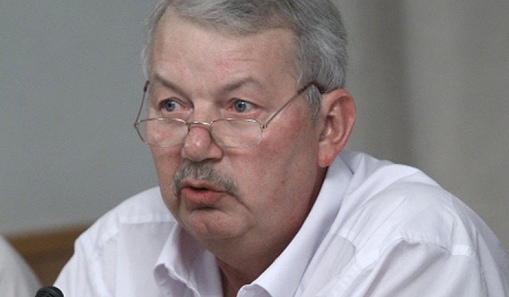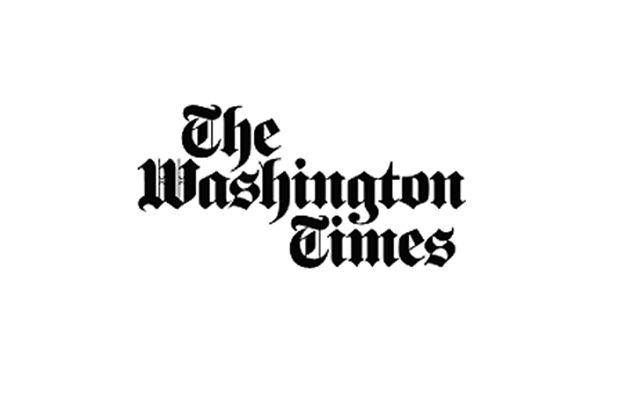
Published 21-06-2013, 08:57
Sergei Rogov
Director of the Institute for US and Canadian Studies of the Russian Academy of Sciences
Speaking at a recent RIA Novosti news conference, Sergei Rogov, Director of the Institute for US and Canadian Studies of the Russian Academy of Sciences, commented on the June 17 meeting between Russian President Vladimir Putin and his US counterpart Barack Obama at the G8 summit in Northern Ireland. He offered an opinion on the current state of and prospects for Russian-US bilateral relations, analyzed agreements reached by the summit participants and touched upon the acute issue of Syria.
After the successful "reset” which was aimed at normalizing Russian-US relations after the 2008 armed conflict in South Ossetia, the two sides resumed normal dialogue and signed a number of agreements, the most important of which were the New START Treaty and an agreement on peaceful nuclear technologies. In the economic sphere, trade grew perceptibly despite the 2009 crisis and the Jackson-Vanik amendment was repealed. This was followed by important steps directed at institutionalizing Russian-US relations, and the Russia-US Bilateral Presidential Commission, made up of almost 20 working groups, was set up.
At the same time, at the end of 2011 there was no "new agenda” and it was hard to expect any breakthroughs against the background of presidential elections in Russia and the United States in 2012. It was in 2012 that a notable cooling in US-Russian relations became apparent, with both sides stepping up rhetoric reminiscent of Cold War stereotypes, which had seemed to be long-forgotten, Rogov said.
Barack Obama promised then Russian President Dmitry Medvedev to display greater flexibility with regard to US antimissile defense plans, which Russia was strongly opposed to, particularly Phase 4 of the European Phased Adaptive Approach to deploying new-generation American interceptors in Romania and Poland. It should be mentioned that the Obama administration did announce that it was abandoning Phase 4 three months ago, Rogov added.
Russian-US high-level dialogue resumed in 2013. The US Presidential National Security Adviser and Secretary of the Russian Security Council exchanged visits, outlining the points of view of their respective presidents. The latest meeting between US Secretary of State John Kerry and Russian Minister of Foreign Affairs Sergei Lavrov, who declared that the United States and Russia would support the convening of a peace conference on Syria to settle the crisis through political means, was another important development.
The two leaders – Putin and Obama – met recently at the G8 summit and signed three important agreements, including, firstly, an agreement on cooperation in the fight against terrorism. The recent tragedy in Boston demonstrated the need for this cooperation (had it been in place, US secret services would have reacted to a Russian tip-off about one of the Tsarnayev brothers). Second, they signed what Rogov described as a unique agreement on combating cyber threats. It is common knowledge that cyberspace has emerged as a new field of warfare, which is rapidly growing in importance, particularly in the military sphere, where methods are being devised that are capable of virtually paralyzing and actually destroying military facilities and weapons systems. The third agreement is designed to promote bilateral relations and strengthen the Presidential Commission. The economic agenda will be overseen by Vice President Joe Biden and Prime Minister Dmitry Medvedev. The two sides reached agreement on maximizing trade and economic relations as the current volume of trade and level of investment between the two countries clearly falls short of what is in the best interests of both countries, he said.
With regard to Syria, both Russian and Western media often focus on the differences in the positions on Syria espoused by Russia, on the one hand, and the United States and its allies, on the other. According to Rogov, one cannot deny that these differences do exist, but the results of the G8 summit are nevertheless encouraging. Despite being outnumbered seven to one, Russia managed to obtain a sufficiently "accurate,” soft resolution on Syria, which did not call for Assad’s resignation and supported a political solution in the form of the Geneva conference. The resolution said that Russia and the United States should undertake to organize this conference. But if the conference does take place, it would be extremely difficult to expect its Syrian participants to agree on a ceasefire and the creation of a transitional government. No radical changes in the sides’ positions should be expected until the fall, Rogov said.
During their meeting on the margins of the G8 summit, Putin and Obama reached an agreement on holding a Russian-US summit in Moscow on September 3-4. The US President agreed to take this major political step, which meant opening himself up to criticism from a Republican opposition notorious for its anti-Russian sentiments. The question is whether Obama has enough political clout and political will to accept compromises with Russia, Rogov said in conclusion.



_jpg/250px-ElbeDay1945_(NARA_ww2-121).jpg)








